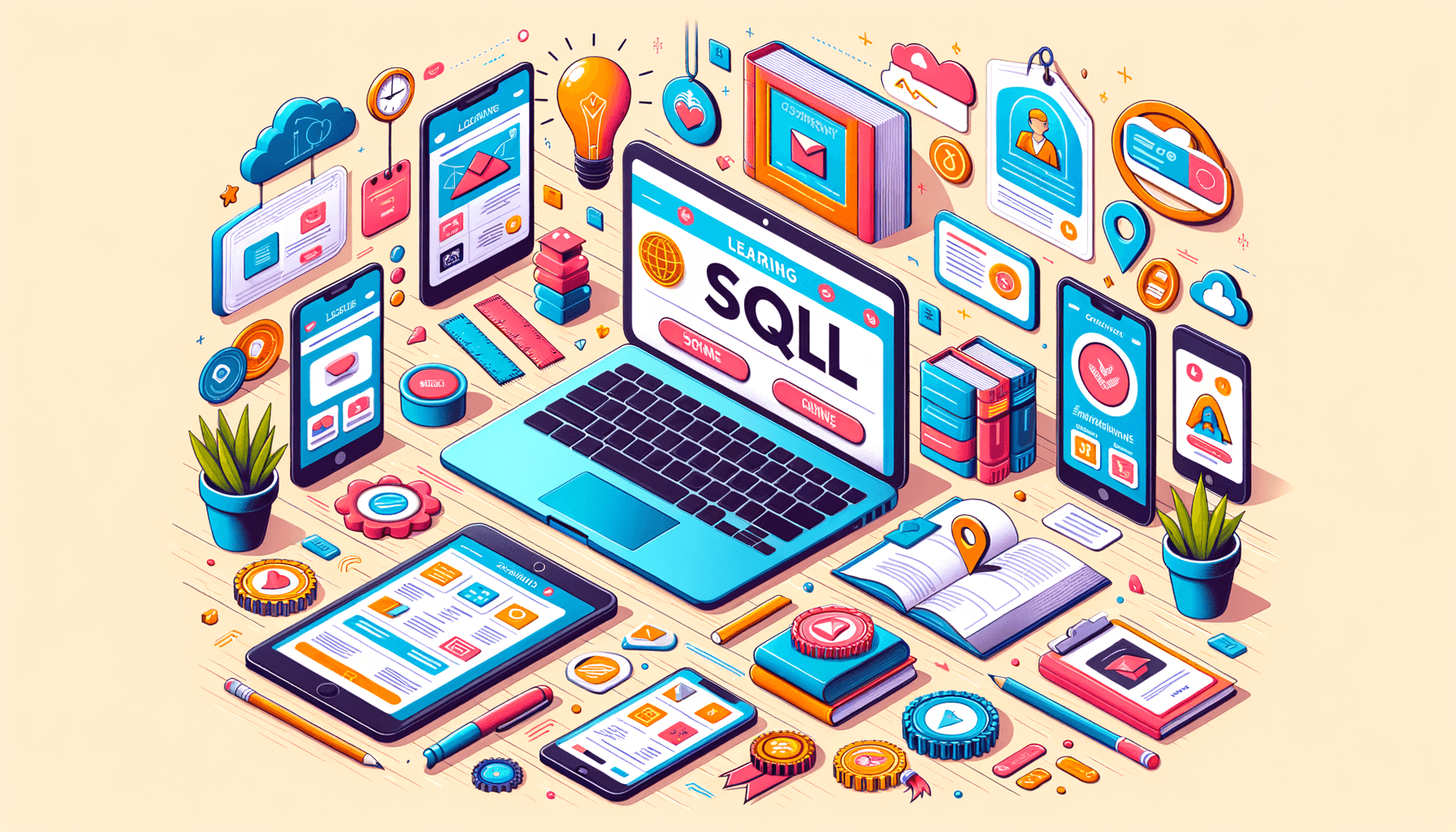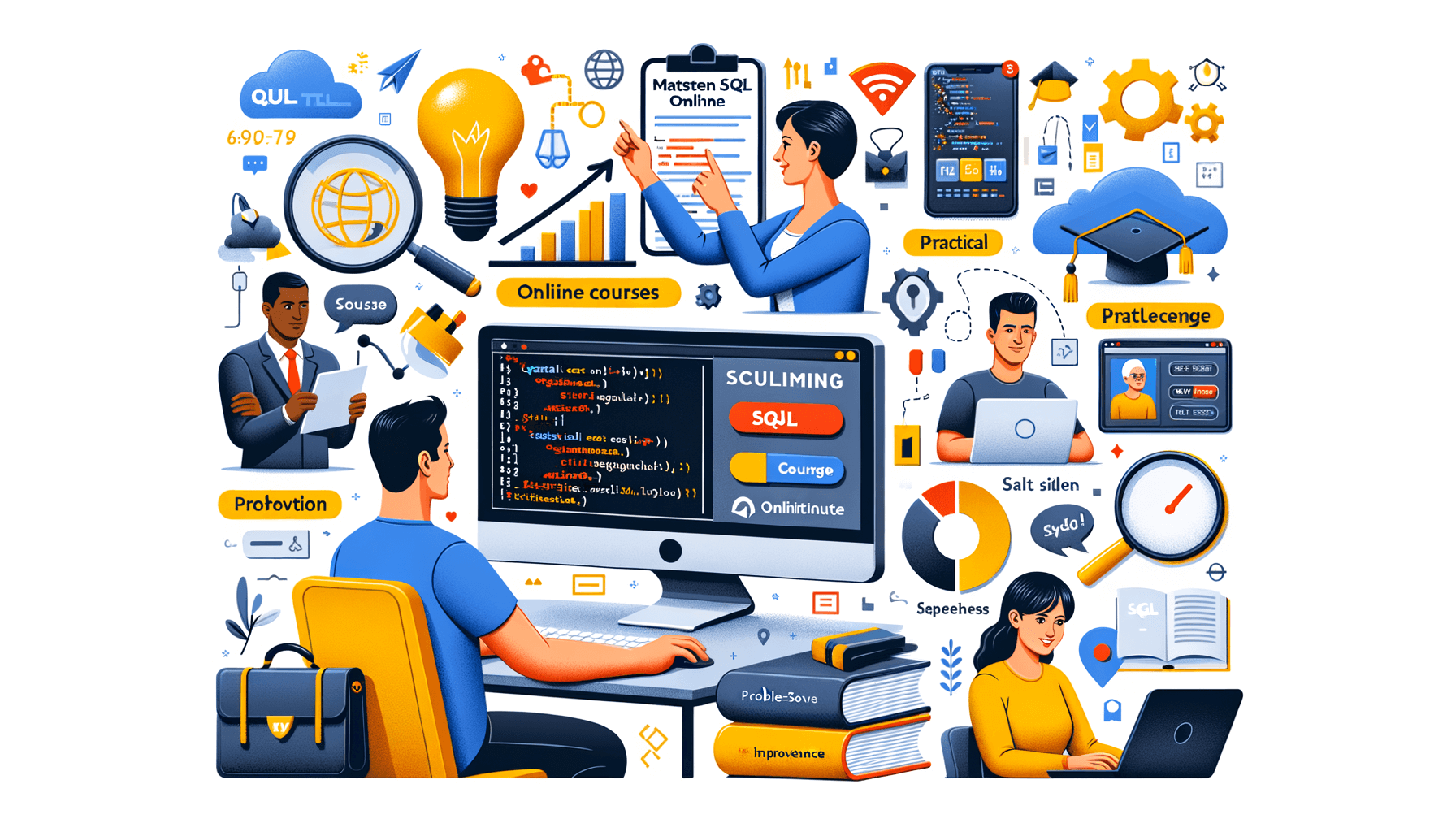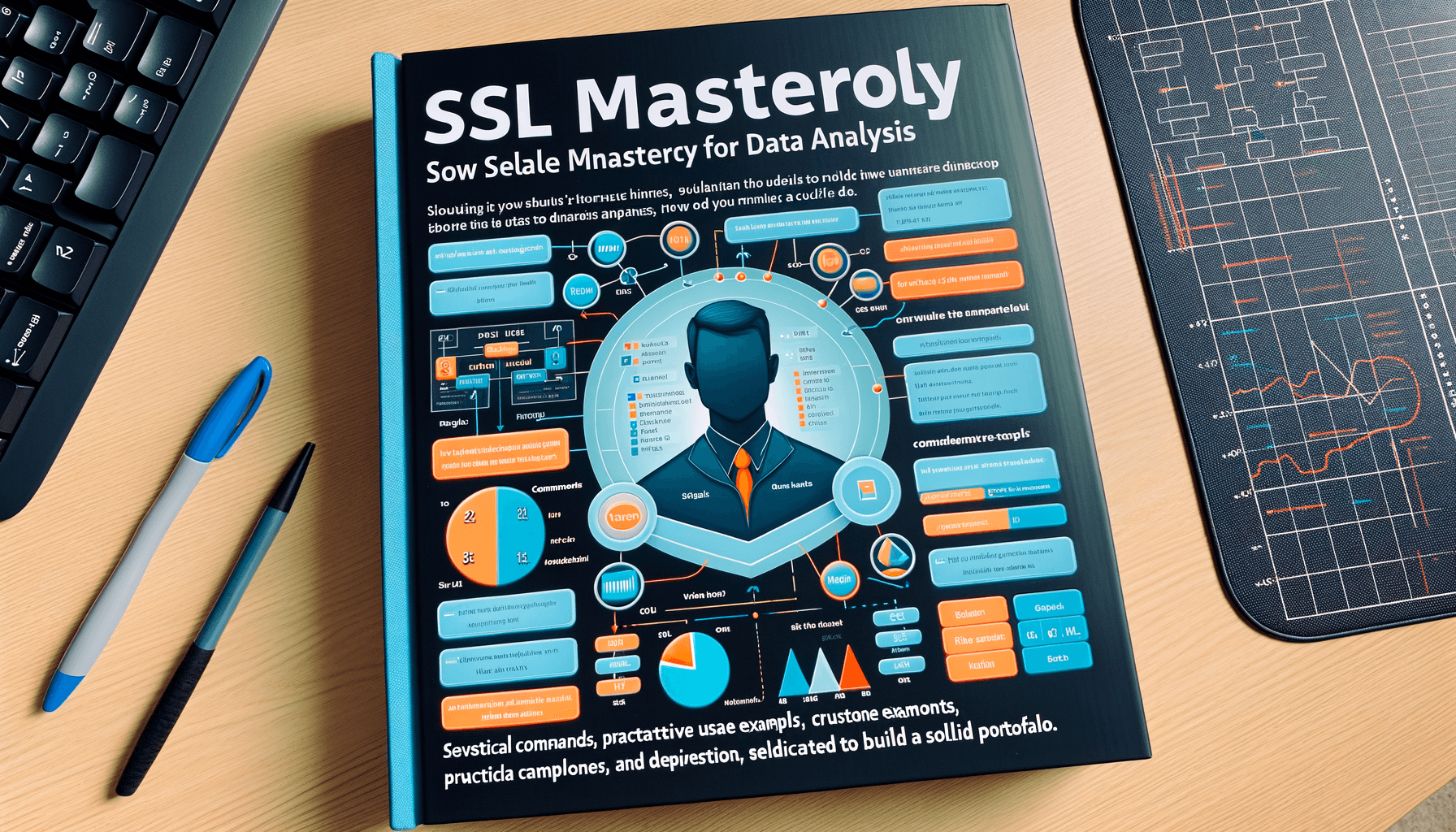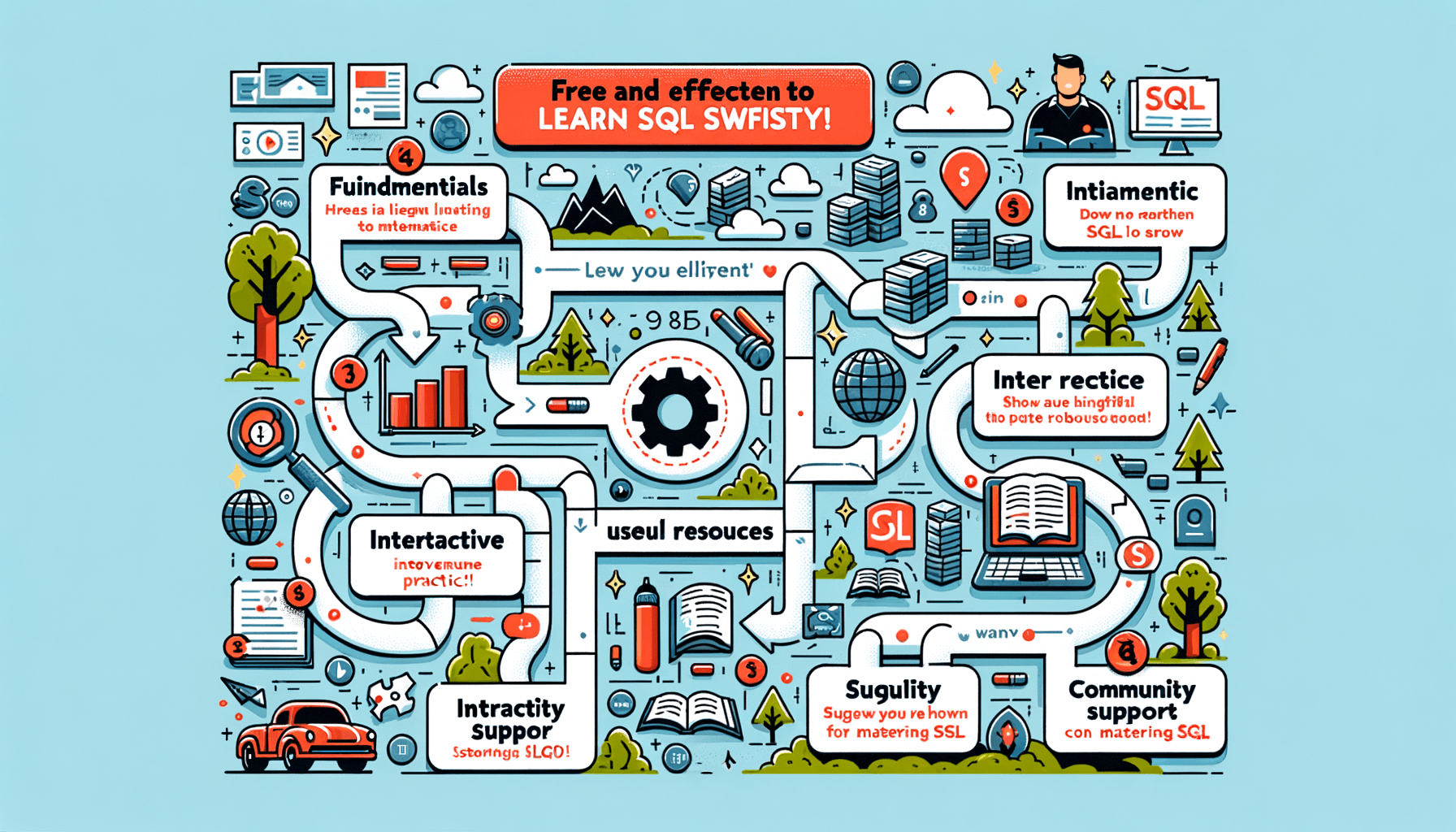A big variety of articles and resources

Discover the Best Way to Learn SQL Online: Top Strategies and Resources
 Sia Author and Instructor
Learn SQL
Sia Author and Instructor
Learn SQL
10 minute read
1. SQL Online Course
SQL online courses offer a comprehensive and flexible approach to learning SQL, making them an ideal choice for beginners and experienced users alike. These courses typically provide interactive learning, real-world projects, and a flexible schedule that allows you to learn at your own pace. Most importantly, they require no prior knowledge, making them accessible to everyone.
Key Features of SQL Online Courses:
- 100% online: No installations or configurations needed.
- Interactive lessons and tutorials with immediate feedback.
- Real-world examples and projects to enhance learning.
- Certificates of completion which add value to your professional profile.
SQL online courses are highly recommended by learners for their structured yet flexible approach to education.
2. DataCamp
DataCamp offers a comprehensive platform for learning SQL through interactive courses and hands-on practice. The platform is particularly known for its user-friendly interface and structured learning paths. DataCamp's courses range from beginner to advanced levels, making it suitable for learners at any stage.
Key Features:
- Interactive SQL Courses: Engage with real SQL problems in a simulated environment.
- Certification Opportunities: Earn certificates as you complete courses to showcase your skills.
- Extensive Resource Library: Access cheat sheets, videos, and expert tips.
DataCamp also provides unique features like SQL cheat sheets and expert tricks to enhance learning efficiency.
Pricing and Offers:
- Regular promotions and discounts are available, including an exclusive 25% off on subscriptions. Check their website for the latest deals.
Learning and Support:
- Comprehensive support materials and forums to help troubleshoot and deepen understanding of SQL.
- Practice with coding challenges to solidify knowledge and skills.
3. LearnSQL.com
LearnSQL.com offers a highly interactive platform that is ideal for both beginners and those looking to enhance their SQL skills. The courses are designed to introduce new concepts and provide immediate practice through small, manageable exercises. You are asked to write real SQL code, which is then evaluated by the platform to confirm its correctness. This method ensures that learners not only understand SQL syntax but also how to apply it effectively in real-world scenarios.
The key to mastering SQL at LearnSQL.com is the hands-on approach that builds confidence and solid SQL expertise over time.
Learners can start with basic tutorials and gradually progress to more complex queries, making it a suitable resource for all learning stages. The structured learning path and instant feedback mechanism make LearnSQL.com a top choice for anyone serious about mastering SQL.
4. Interactive Online Courses
Interactive online courses offer a unique blend of flexibility and structured learning, making them an ideal choice for mastering SQL. These courses, such as those found on platforms like LearnSQL.com, allow learners to engage with the material actively by writing and running real SQL queries within an online console. This hands-on approach ensures that students can immediately apply what they learn, enhancing retention and practical skills.
Key Benefits of Interactive Online Courses
- Flexibility: Learn at your own pace and schedule, accommodating various lifestyles and responsibilities.
- Immediate application: Practice writing real SQL code in exercises that simulate real-world scenarios.
- Efficiency: Courses are designed to be clear and concise, focusing only on essential skills and knowledge to optimize learning time.
Interactive online courses represent the fastest and most effective way to learn SQL, combining the depth of traditional courses with the accessibility of digital platforms.
5. SQL YouTube Tutorials
YouTube is an invaluable resource for learning SQL through visual and interactive content. Beginners can start with basic tutorials like 'Learn Basic SQL in 10 Minutes' from StatisticalProgramming.Net or 'Learn SQL in 60 Minutes' from Web Dev Simplified. As you advance, channels like freeCodeCamp.org and Programming with Mosh offer comprehensive courses that cover everything from simple queries to complex database operations.
For those who prefer structured learning, piecing together a series of videos might be challenging. However, the vast array of tutorials available allows you to tailor your learning experience to your specific needs. When you encounter a tough topic, a quick YouTube search can provide numerous tutorials that break down the concept into understandable parts.
YouTube's flexibility in learning pace and style makes it a popular choice for aspiring data analysts and those looking to enhance their SQL skills on their own terms.
6. SQL and Database Bootcamps
SQL and database bootcamps provide an intensive learning environment designed to teach SQL skills rapidly. These bootcamps are ideal for those who are looking to make a significant leap in their database management and querying skills in a short amount of time. However, they require a substantial time commitment and can be costly. The pace can also be challenging, especially for beginners.
Try a Free Bootcamp
Although not always comprehensive, free bootcamps like Datacamp’s Introduction to SQL offer a quick way to enhance your SQL skills. This particular bootcamp covers essential querying skills over a 4-hour session with 41 exercises.
Udemy: The Complete SQL Bootcamp: Go from Zero to Hero
This course on Udemy is highly regarded for its comprehensive coverage of SQL and PostgreSQL. It provides a deep dive into creating complex queries and performing data analysis, making it a top choice for those looking to advance their skills. The course is accessible and praised for its clear instruction, spanning 84 hours of content and assignments.
Bootcamps are a powerful way to immerse yourself in learning SQL, offering structured and expert-led training that can transform your understanding of databases.
7. Books About SQL
When diving into the world of SQL, books can be a tremendous resource for both beginners and advanced users. They offer a structured and detailed approach to learning, covering everything from basic commands to complex queries and database management. Books like 'SQL QuickStart Guide' by Walter Shields and 'SQL Pocket Guide' by Alice Zhao are essential for anyone looking to deepen their understanding of SQL.
Here are some recommended titles along with their key features:
| S/N | Book Name | Author | Key Features |
|---|---|---|---|
| 1 | SQL QuickStart Guide | Walter Shields | Basic database structures, SQL retrieval techniques, essential queries |
| 2 | SQL: 2 Books in 1 | Mark Reed | SQL fundamentals, advanced configuration and setup |
| 3 | SQL Pocket Guide | Alice Zhao | Task-specific SQL commands, syntax examples |
These books not only provide theoretical knowledge but also include practical examples and exercises to help you apply what you've learned. They are a great way to enhance your SQL skills and become proficient in handling real-world database management scenarios.
8. Language Reference Guides
Language reference guides are indispensable tools for mastering SQL. They comprehensively cover everything from syntax and concepts to coding best practices. Familiarizing yourself with a reference guide early in your studies is crucial. These guides vary, with each tailored to different database types and usage scenarios. For instance, the Oracle SQL Database reference is highly recommended for beginners.
Why Use Reference Guides?
Reference guides offer clear, concise explanations that are essential when you encounter unfamiliar SQL concepts or syntax during your learning journey. They serve as a reliable resource for both beginners and advanced users to ensure continuous learning and skill enhancement.
Choosing the Right Guide
Selecting the right SQL reference guide depends on the specific databases you are working with and your objectives. Guides like BitDegree provide a broad overview and are particularly useful for beginners due to their simplicity and ease of understanding.
9. Forums
Online SQL forums and chat boards are excellent resources for programming beginners seeking answers and guidance. These platforms not only provide a space to resolve queries but also enable networking with peers, which can significantly enhance one's coding skills. Engaging in forums like Stack Overflow allows users to both seek advice and share their knowledge, making it a dynamic learning environment.
Consult a Thread
When unsure about a SQL problem, consulting threads on forums can be incredibly helpful. Sites like Stack Overflow and Stack Exchange host a myriad of discussions where both new and experienced programmers share insights and solutions. This interaction fosters a deeper understanding and is a practical way to improve one's SQL skills.
Community Boards
Platforms such as DataCamp offer community boards where learners can discuss SQL topics and project-related issues. These boards are also accessible in multiple languages, making them a valuable resource for non-native English speakers.
Reddit hosts a variety of forums where users can dive into specific SQL topics or broader programming discussions. It's a place to find targeted advice, share experiences, and discover resources tailored to your current challenges in learning SQL.
10. Writing SQL Queries
Writing SQL queries is a fundamental skill for anyone looking to work with databases. The best way to learn SQL is through active practice and writing queries yourself. Here are some steps and tips to effectively write SQL queries:
- Understand the basics: Before diving into complex queries, ensure you have a solid understanding of SQL syntax and basic commands like SELECT, INSERT, UPDATE, and DELETE.
- Practice regularly: The more you write SQL queries, the better you will become. Set aside time each week to practice different types of queries.
- Use real-world scenarios: Apply your SQL knowledge to real-world data problems. This will help you understand how SQL can be used to solve actual business issues.
- Review and optimize: Always review your queries to make sure they are efficient and achieve the desired results. Look for ways to optimize and refine your SQL code.
By following these steps, you will enhance your ability to write effective SQL queries and become more proficient in handling database management tasks.
Conclusion
In conclusion, the journey to mastering SQL online is enriched by a variety of resources and strategies. Whether you choose interactive online courses, engage with community forums, or supplement your learning with YouTube videos and books, each method offers unique benefits. The key is to combine these resources to suit your learning style and pace. Remember, consistent practice and real-world application are crucial in becoming proficient in SQL. Embrace the flexibility of online learning and make the most of the diverse tools at your disposal to become an SQL expert.
Frequently Asked Questions
What's the best way to learn SQL?
The best way to learn SQL is through interactive online courses that offer structured learning, practical exercises, and real-time feedback. Platforms like DataCamp and LearnSQL.com are highly recommended.
How long does it take to learn SQL?
The time it takes to learn SQL can vary based on your prior experience and the time you dedicate to learning. Typically, a few weeks to a few months is sufficient to grasp the basics and start applying SQL effectively.
Can I learn SQL on my own?
Yes, you can learn SQL on your own using online courses, books, and tutorials. Interactive platforms and engaging with community forums can also enhance your learning experience.
Are there any free resources to learn SQL?
Yes, there are free resources such as SQL tutorials on YouTube, free introductory courses on platforms like DataCamp, and community forums where you can learn and interact with other learners.
What should I learn alongside SQL?
Alongside SQL, it's beneficial to learn about different databases, programming languages like PHP, and techniques for creating and managing databases to enhance your data management skills.
What are the practical ways to improve SQL skills?
Practical ways to improve SQL skills include writing actual SQL queries, participating in coding challenges, and engaging in projects that require database management. Regular practice and real-world application are key to becoming proficient.
Related Articles

10 Effective Tips on How to Learn SQL Online
9 minute read

A Comprehensive Guide to Learn SQL for Analysts
8 minute read


